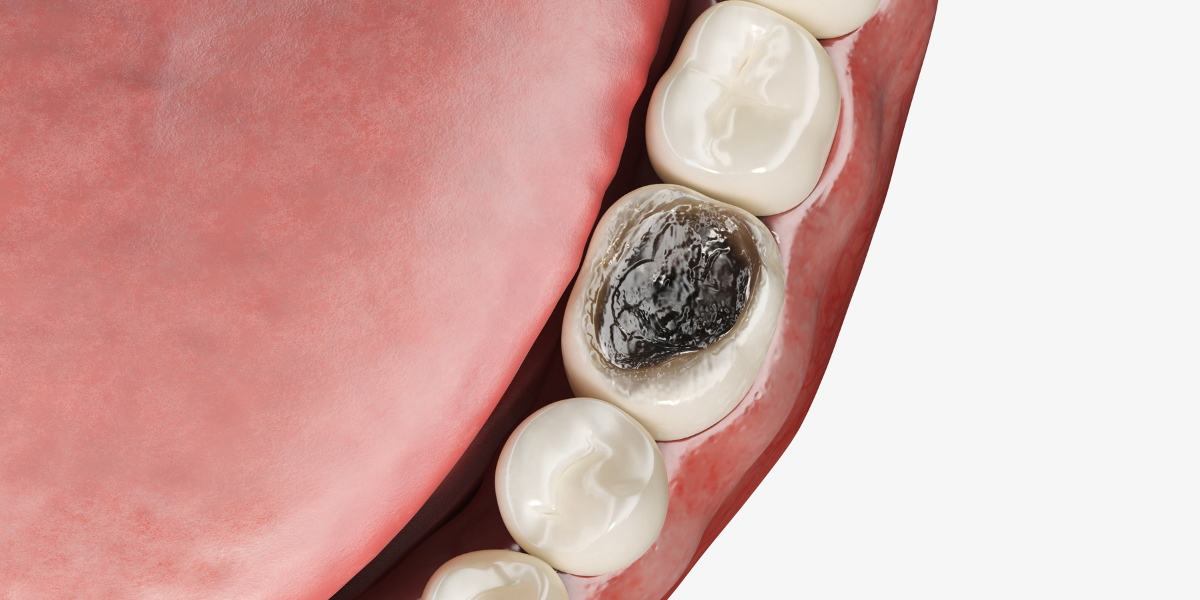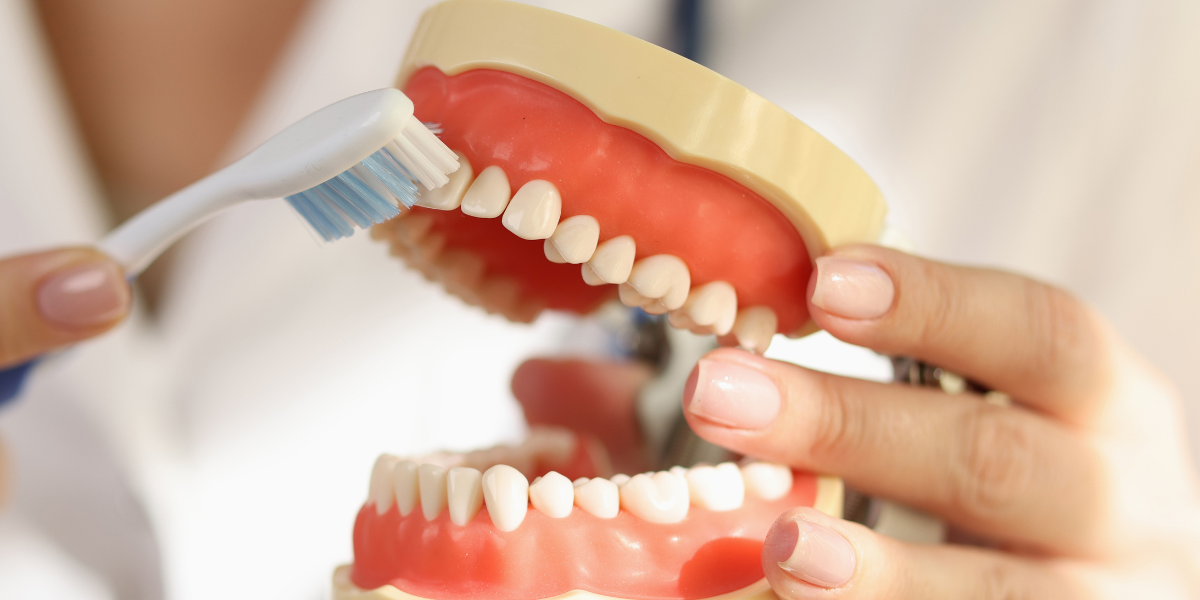How to care for sensitive teeth & relieve tooth pain

Find out what causes tooth sensitivity and how to stop the daily pain & discomfort.
Having sensitive teeth is an uncomfortable problem that you might notice after having something cold such as ice cream or hot, such as a bowl of hot soup.[2] Although this discomfort at times can alert us to a potential cavity, it might be an indication that we might need to make some changes in our oral hygiene home care routine.[2]
What are some common causes of sensitive teeth?
Although some people are more prone to having sensitive teeth due to having thinner enamel, there are many factors that can lead to the development of your teeth becoming sensitive. The enamel is the hard protective outer layer of the tooth. If it becomes worn down then the next layer, dentin which is much softer becomes exposed, this exposure can lead to tooth sensitivity.[3] Some other factors that contribute to tooth sensitivity are:
- Brushing too hard can cause the enamel to wear away overtime, leaving the teeth exposed. This often happens where the teeth and gum meet at the gum line.[3]
- Grinding or clenching your teeth may wear down surfaces of your teeth.[1]
- Gum Recession is usually developed as a result of periodontal disease. It occurs when the gum tissue pulls away from your teeth, exposing the roots of your teeth which will lead to increased sensitivity.[1]
- Cracked teeth, tooth decay, or worn down fillings can leave the dentin exposed and open to harmful bacteria.
- Acidic foods and medical conditions such as GERD or Bulimia can contribute to tooth erosion. The excess acid can coat the teeth and wear down the layers of the teeth overtime. Consume acidic foods less often and see your physician if you have a contributory medical condition.[1][3]
- Your teeth might feel temporarily sensitive following certain dental procedures such as teeth bleaching or restorative treatments like fillings or crowns.[2] This sensitivity usually diminishes in four to six weeks. If you have discomfort after a procedure make sure to inform your dentist so that they can determine if this normal or is a concern needing additional treatment.[1]
How is tooth sensitivity treated?
- If your tooth sensitivity is mild, you can try over-the-counter sensitivity treatments such as toothpastes labeled specifically for sensitive teeth. Sensitivity toothpastes contain ingredients such as Potassium Nitrate that will help desensitize your teeth overtime and help block the discomfort of the tooth sensitivity you have been experiencing.[2]
- Gently brush with a soft toothbrush, using a medium or hard toothbrush is not recommended as it contributes to wearing away the enamel of your teeth quickly.[2]
- If you grind or clench your teeth, discuss this with your dentist to see if a night guard or corrective treatment is advised.
- Use a non-alcoholic mouthwash that contains fluoride or xylitol. These ingredients help prevent cavities and help desensitize uncomfortable areas.
- If you plan to do in-office or at-home dental bleaching, discuss this with your dental professionals prior. They may recommend certain desensitizing products to be used prior to the treatment and after to help prevent or alleviate any discomfort.[3]
- Visit your dental office regularly. If you have sensitivity don’t ignore these symptoms, they could be indicators that immediate treatment might be necessary. Your dental professionals can help with sensitive areas by applying fluoride gels, prescription-grade desensitizing agents in-office, and might prescribe you prescription strength treatments to use at home.[1][3]
Tooth sensitivity can definitively be a pain, pun intended. However thankfully as discussed there are several options that can help it to be treated and successfully managed.
References
- Cleveland Clinic. Teeth Sensitivity.(2022).
https://my.clevelandclinic.org/health/symptoms/10954-teeth-sensitivity - 2. Frank, Christine. (2018, September 29). Why Are My Teeth So Sensitive? https://www.healthline.com/health/sensitive-teeth
- Oral Health Foundation.Sensitive Teeth. https://www.dentalhealth.org/sensitive-teeth







